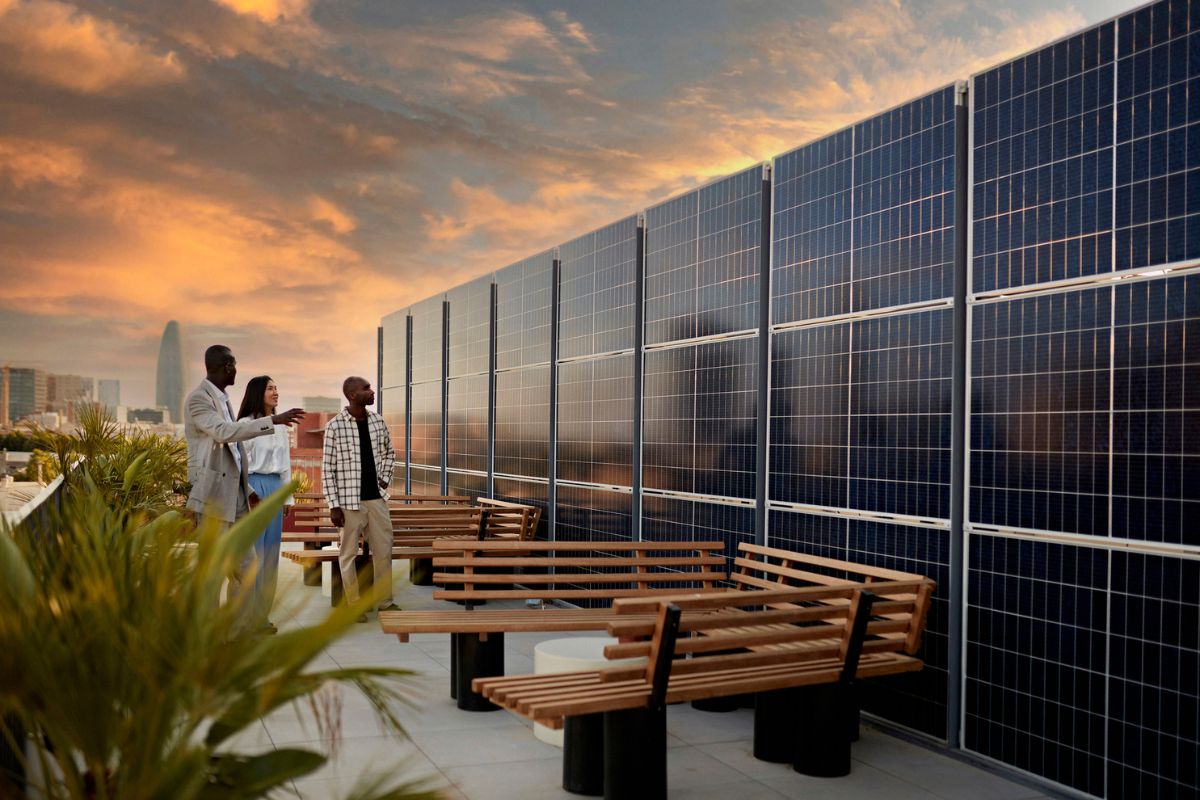Introduction
Power Purchase Agreements (PPAs) are becoming increasingly popular for big companies and SMEs alike. But what exactly do PPAs involve, and how can they benefit your business? Our guide takes you through everything you need to know about Power Purchase Agreements, so you can make informed decisions about your energy procurement strategy.
What is a Power Purchase Agreement?
A Power Purchase Agreement (PPA) is a long-term contract where a company agrees to buy electricity from a power producer at a fixed price. It’s often used to purchase renewable energy, like solar or wind power, allowing businesses to lock in their business energy costs and support clean energy projects without having to build or operate their own power plants.
Key features of Power Purchase Agreements include:
- Long-term contracts – typically ranging from 10-20 years to provide stability for both parties
- Fixed pricing – PPAs usually set a fixed price for the electricity generated, this gives buyers a predictable revenue
- Ownership and operation – the seller owns and operates the energy generation facility, whilst the buyer purchases the energy produced, without taking ownership of the generation infrastructure
- Environmental credits – for renewable energy PPAs, environmental certifications may be included in the agreement, allowing the buyer to claim the environmental benefits of the renewable energy produced.

How Do Power Purchase Agreements Work?
Power Purchase Agreements work by allowing businesses to secure a long-term supply of electricity at a fixed price. The customer and the producer sign a contract where the producer generates electricity (typically from renewable sources like solar or wind) and delivers it to the grid. The company then pays for this electricity at the agreed rate.
- Agreement – a contract between the supplier and the customer is signed agreeing on the amount of electricity that will be purchased, the price, and the length of the contract
- Energy production – the energy is generated by the supplier/production facility
- Delivery – the electricity is delivered to the grid, where the customer can use it to power its operations
- Payment – the customer pays the agreed-upon price for the energy, which is often a lower price compared to market rates
Power Purchase Agreement customers can often take advantage of reliable renewable energy without having to build or maintain the necessary infrastructure.
Power Purchase Agreements for Solar Panels
Power Purchase Agreements for solar panels are contracts where a company or individual agrees to purchase the electricity generated by a solar panel system installed on their property.
Solar panels are installed on a business’s property (e.g. on the roof), with no upfront cost. The panels still belong to the installer/provider, rather than the business, meaning that they are also responsible for maintaining the solar panels to ensure they are in good working order.
The business owner then agrees to purchase the energy generated by the solar panels at a fixed rate for a fixed period of time. This can help make accessing renewable energy easier for businesses that may not have the means to invest in infrastructure by themselves.

Benefits of Power Purchase Agreements
Power Purchase Agreements can be beneficial for businesses that are looking to reduce and manage their energy costs and reduce their carbon footprints.
- Protection against price fluctuations – Traditional energy contracts can be subject to wholesale price volatility. But when customers acquire their energy through a PPA, they can expect fixed and reliable prices, reducing financial risk. PPAs also typically offer fixed prices over a long period of time, allowing easier budgeting for businesses.
- Reducing energy costs – Power Purchase Agreements may also have lower prices than traditional energy contracts
- No upfront investment – When entering into a PPA, customers are able to benefit from renewable energy immediately, without the hefty upfront cost of generating their own energy on-site.
- Reaching sustainability goals – Power Purchase Agreements often involve renewable energy and offer a simple way for businesses to power their operations with green energy, lowering their carbon footprints and reaching their CSR goals.
- Customised agreements – Not all PPAs are the same, some agreements may come with optional extras, such as enhanced energy insights and monitoring systems, so you can tailor your PPA to your individual needs.
Power Purchase Agreements may be more beneficial for larger businesses with higher energy usage, but with the right terms, it is possible for smaller businesses to benefit too.
Power Purchase Agreement Costs
The costs involved in your Power Purchase Agreement will depend on a number of factors and will need to be negotiated with your provider.
Agreed PPA rates are often lower than standard utility rates, offering cost savings over time. The price paid will also include the cost of any maintenance required for equipment involved in energy generation. Actual savings will depend on various factors like location, energy market conditions, and contract length.
The length of your PPA will also affect your pricing, with longer contracts often having lower rates. However, it is important to remember that if you want to leave your PPA early, you may be subject to an exit fee.
When signing a Power Purchase Agreement, it is important to read the full terms of your contract and clarify anything you are unsure about with your provider.

Looking For a Business Energy Supplier Who Can Help You Grow?
Whether you’re a small independent startup, or a multi-site organisation, Yü Energy has smart solutions to help you manage your business energy. Find out more and get your free business energy quote today.

 0115 975 8258
0115 975 8258

